The Large Black pig is a large breed of domestic pig originated from United Kingdom. It is particularly native to Cornwall, Devon and Essex. The breed is also known by some other names such as Boggu, Cornwall Black and Devon.
The breed actually resulted from the amalgamation of black pigs from two geographically separate areas, Cornwall and Devon in the South-West of England, and Essex, Kent and Suffolk in the east. The Large Black pig is the only British pig breed which is entirely black in color.
The breed combined local black pig breeds from the West County and the East of England. An association for the breed founded in 1898 or 1899.
It was most common and was a popular breed in the early 1900s, and it was exported to many areas of the world. But it’s total population declined after the Second World War as farmers turned to more productive pig breeds which were more suitable to intensive pig farming system.
And the Large Black pig breed was almost extinct by the 1960s. Although the total numbers have slowly risen, but the breed is still considered as ‘vulnerable‘ by the Rare Breeds Survival Trust, Rare Breeds Canada and American Livestock Breeds Conservancy.
Origin And History of Large Black Pig
The Large Black Pig is a breed of domestic pig that originated in the United Kingdom, and it is one of the oldest pig breeds in the world. Also known as the Devon, Cornwall, or Lop-eared Black, the Large Black Pig is highly valued for its meat quality, hardiness, and docile nature.
Characteristics
The Large Black Pig is also known for its unique physical characteristics. These pigs have large, floppy ears that cover their eyes, which are believed to protect them from the sun and keep them cool.
The breed is also characterized by its dark coat, which is due to a dominant gene that gives the pig a black color. The skin of the Large Black Pig is also dark, which makes it less prone to sunburn and other skin issues.
Another most distinctive traits of this breed is its size. As its name suggests, this breed is known for its large size. Adult males weighing up to 700 pounds and females up to 600 pounds.
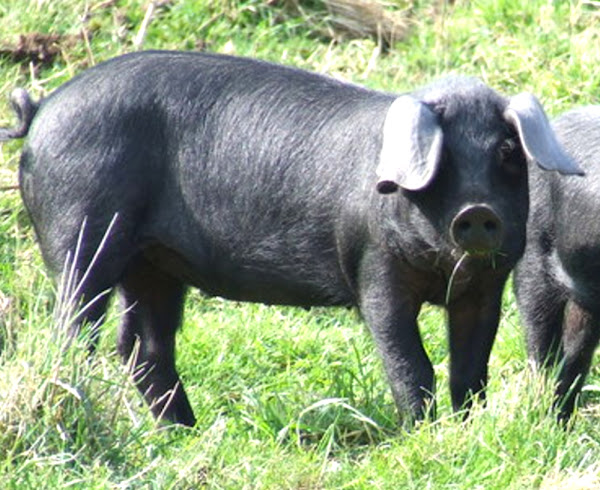
Uses
The Large Black Pigs are primarily known for their exceptional meat quality.
Special Notes
Large Black pigs are very hardy animals. They are of very good behavior and have relatively docile temperament. The sows are known for having larger litters of 8-10 piglets, with some sows have been known for having litters of up to 13 piglets. The animals are excellent foragers and their foraging ability make them very useful for extensive farming system, but they are not good for intensive pig farming system.
They are best suited for the pasture-based farming system due to their strong foraging and gazing ability. The sows have strong maternal instincts and they are known for their long periods of fertility.
The Large Black pig was mainly used for meat production, especially bacon. Meat of this animal is known for good flavor and lean quality without an excess of black fat.
The breed was often crossed with the Yorkshire and Middle White pigs in commercial production for producing a vigorous hybrid that was well regarded by the farmers. However, review full breed profile of the Large Black pig in the chart below.
| Breed Name | Large Black | |
| Other Name | Boggu, Cornwall Black or Devon | |
| Special Notes | Very hardy, good behavior, docile temperament, fertile, larger litters, excellent foragers, good for extensive pig farming system, good for pasture, great maternal instincts, good for bacon production | |
| Breed Size | Large | |
| Boars | 320-360 kg | |
| Sows | 270-320 kg | |
| Climate Tolerance | All climates | |
| Color | Entirely black | |
| Rarity | Vulnerable | |
| Country/Place of Origin | United Kingdom |

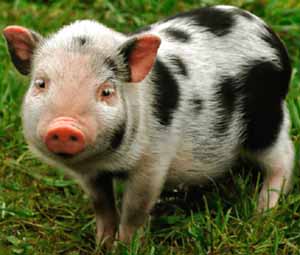
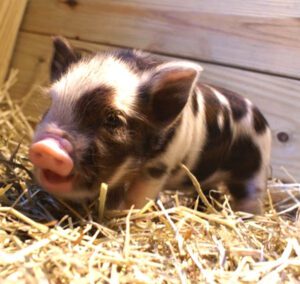
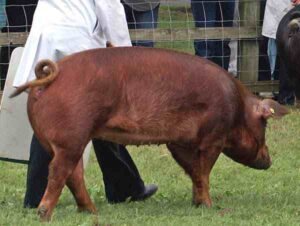
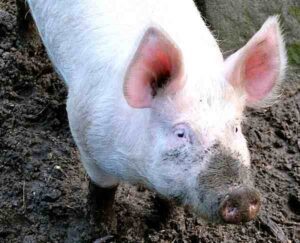
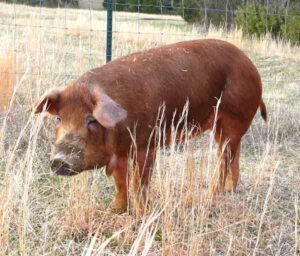

Give me Large black pig .